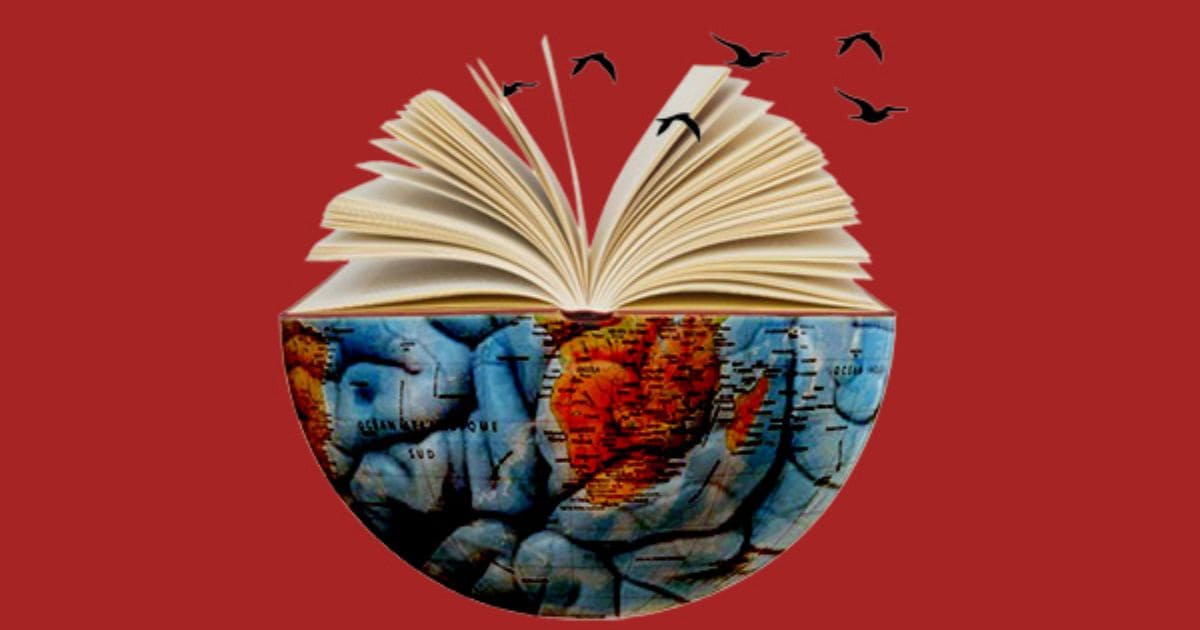Indonesia. We may rarely see books thrown into fires these days, but history has repeatedly recorded how ideas have been considered more dangerous than bullets.
From the first script carved in Sumerian clay to the bookshelves we find on our living room shelves, humans have always held onto something both most fragile and most powerful: memory. And whenever power felt threatened, books were the first victims dragged to the gallows.
“Writing is working for eternity,” said the writer Pramoedya Ananta Toer. This statement is not mere rhetoric, but a reality reflected in the long history of human civilization.
Books have been a medium for documenting human knowledge since their first discovery. Humans have long asked questions and sought answers to all the events they encountered. Then, as humans began to discover knowledge, they realized that relying on memory alone would not suffice; memory was too fragile. Therefore, they began to record, crystallizing their thoughts into written form. This is where the cultural product known as the book emerged, although at that time it did not yet have the form it does today.
Since ancient times, books have been a way to preserve and extend memories. They contain knowledge, culture, and identity that their authors strive to pass on. If a microscope is an extension of sight, a telephone an extension of hearing, then books are an extension of memory and imagination. This is certainly a good thing, but every good thing has its challenges. From the moment of its invention until today, books have constantly faced the threat of extinction.
Destruction of Books from Time to Time
At least in the past 3 centuries, there has always been a history of book destruction, as Fernando Baez says in his book Book Destruction from Time to Time . Destruction has occurred since ancient times, the Byzantine era, and the 20th century, until now.
There are many motives behind the destruction of books. But two of the most common are political and religious interests. This is what happened in Europe during the time of Galileo Galilei, who was tried and had all his writings burned. This was because he supported the heliocentric theory, which was considered contrary to church knowledge and feared to be heretical.
As a result, all of his records were destroyed. The goal was to maintain the “stability of public knowledge” according to the authorities. Book destruction was also recorded long before that. The Egyptian Library of Alexandria, which housed 40,000 books, was destroyed during war. The destruction of libraries as sources of knowledge also occurred during the Islamic Golden Age in Baghdad. The Bait Al-Hikmah library was destroyed during the Mongol invasion under Hulagu Khan.
The destruction that occurred in the 20th century occurred during World War II. The Nazis destroyed Jewish books, an event called the bibliocaust. It was a vivid symbol of the ideological violence that preceded the Holocaust. Indeed, as Heinrich Heane said, “Where they burn books, they ultimately burn people.”
In Indonesia itself, history records that books considered left-wing were banned, through censorship and bans by the ruling regime.
All book destruction has one goal: to erase identity. Destroying books is tantamount to erasing collective memory. And no identity can ever be formed without memory. The destruction of books is a mass gallows for the growth of civilization.
For me personally, destroying books is an act of violence. It can be seen as a symbol of oppression, the erasure of history, knowledge, and culture. It can also be considered an insult to intellectuals.
Ideas deserve to be held in high esteem. If an idea feels threatened, burning books won’t improve the situation; it will only make people more curious. Furthermore, burning books will cut off the opportunity for human civilization to learn. Fear of an idea should be countered by creating another idea. To borrow Gramsci’s term, this is called counterhegemony . An idea met with an idea.
Ultimately, burning books never truly solves a problem; it simply suppresses freedom of expression. It only creates more problems, because an idea never dies unless its owner kills it.
Once a thought is written down, it has already traveled through many channels and will continue to flow. Through books, civilization is built and awareness is nurtured. Books are like the womb of knowledge, the birthplace of resistance.
Reading keeps us alive and aware. The human mind is like a plant; it will continue to grow and develop if we nurture it. Of course, the best way to nurture it is through reading and writing, so that ideas will continue to find a way to live and multiply.
The soul can leave, the body can die, but not with ideas. They are eternal. So value books, they are not just a pile of paper but the living breath of an era. Read them, don’t burn them!

Comments